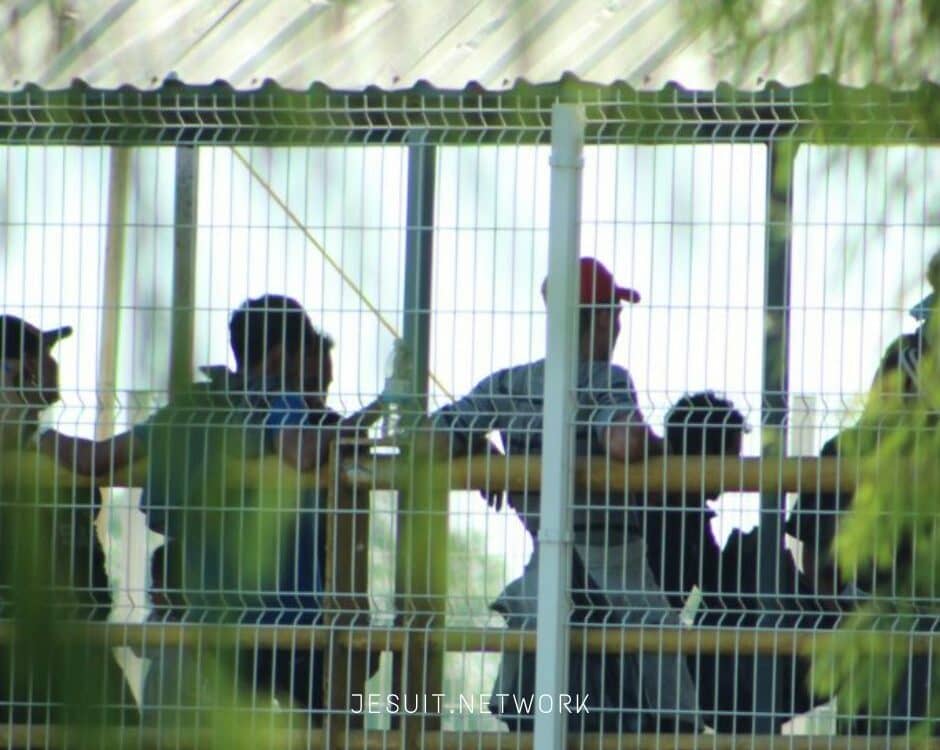Este sitio web utiliza cookies para que podamos ofrecerle la mejor experiencia de usuario posible. La información sobre cookies se almacena en su navegador y realiza funciones como reconocerle cuando vuelve a nuestro sitio web y ayudar a nuestro equipo a comprender qué secciones del sitio web le resultan más interesantes y útiles.
INTERVIEW | "The gathering of the European Ignatian family" wishes and challenges of the new President of the Conference of European Provincials
Frank Janin SJ, the newly appointed President of the Conference of European Jesuit Provincials (CEP) has said that he believes that Europe is at “a key moment in its history” and that the Society of Jesus has a valuable role in helping the continent to rediscover its roots.
Fr Franck Janin SJ, who is currently the Provincial of the Jesuits in South Belgium and Luxembourg, was speaking shortly after the Curia in Rome announced his appointment. He will replace Irish Jesuit, Fr John Dardis SJ, who was appointed as one of Fr General’s special assistants – General Counsellor for Discernment and Apostolic Planning – at last year’s 36th General Congregation (GC36).
Born in France in 1958, Fr Franck joined the Society of Jesus in 1984 in the Province of South Belgium and Luxembourg (BML). Part of his formation was in Toronto, Canada. He was assistant to the novice master and then the novice master in the joint novitiate of North and South Belgium from 1995-2000. He then joined the team in the spiritual centre of the South Belgian Jesuits near Namur, becoming its Director in 2002. He has been Provincial of BML since 2011.
Fr Janin will take office as President of the CEP in late summer 2017 and here it is an interview with his wishes and opportunities as he has been newly appointed in such a challenging position.
Which are your wishes as newly appointed President of the Conference of European Provincials?
For the past six years, as Provincial of the BML, I have been able to appreciate all what the Conference brings to our mission in all its dimensions and areas of work. I will point out in the first place the aspect of fraternity in a concrete awareness of the universality of the Society. As a provincial I felt that I did not stand alone in my task. I have brothers who share the same concerns, the same questions, and the same dreams.
The role of the Assistancies is also very important, but opening up to the European dimension makes it even more possible for me to realize that the mission goes beyond my concerns at the province level. As Jesuits, we must always keep in sight the horizon of the world. In this sense, the framework of Europe is still too narrow, but it nevertheless makes very concrete this perspective of universality that we claim to live by. My deepest wish is that we could keep on forging these bonds of fraternity and friendship in the Lord with the goal of increasingly listening to what the Spirit of God expects from us in this part of the world. The General Congregation 36, like the Pope’s speech on its occasion, put the need for discernment back in the forefront. In a world that is as moving and uncertain as ours, we are constantly invited to remain open to the suppleness and creativity of the Spirit.
Main opportunities now for the Society in Europe
On the political level, many deplore the loss of a common European vision that endangers its identity, its very existence. This situation confronts us to a greater than ever need to be ourselves: Jesuits, carrying a vision able to bring us together and to make us overcome our differences, while respecting them at the same time. The situation of a Europe doubting itself, seeking its own path, tempted by identity withdrawals, can make us insecure. However, it can also stimulate us to run against the tide, to testify that it is possible to discuss in depth without being determined by our historical, psychological and ideological limits. In this sense, the whole process of restructuring European Provinces is a magnificent opportunity. We can live this restructuring as a constraint and a fatality due to our numerical reduction. Or we can live it as a springboard that pushes us out of ourselves and our securities, brings us out of the way we are imagining others, and enables us to dare and talk about our wounds and fears, and helps us to lower our walls and build bridges instead. If the Society of Jesus is not capable of this, who will be?
This situation of poverty and scarcity can therefore be approached as a chance, a grace. Communion and collaboration in the mission becomes a necessity. It should always have been this way, and the Society has insisted on it for a long time, but it now appears in full light: collaboration between us, companions of Jesus, and with all those with whom we share the mission. The existence of a rich and numerous «Ignatian family» is emerging in many of our Provinces. Could we ever imagine a gathering of the “European Ignatian family”?
However, this does not dispense us from continuing to ask ourselves the crucial and difficult question of vocations. Ultimately, whatever restructuring we undertake, vocations remain essential if we wish to continue to carry out any mission whatsoever. In this respect, particularly in Europe, we are not at the end of a major change.
The places of exchange where it is possible to increase our European consciousness are already many. Think of all the interprovincial collaboration groups (networks) that deal with faith, education, young adults ministry, ecology and social apostolate, and formation. All these groups can be centers of discernment for a renewed mission, in tune with the needs of the world, our charism, and the inspirations of the Spirit.
 Main challenges for the Society in Europe
Main challenges for the Society in Europe
I have already mentioned it. It seems to me that the main challenge for the Society of Jesus in Europe (and no doubt beyond it) is to permanently remain in an attitude of discernment about its own objectives. Where does God really expect us? At the provincial level, this choice of priorities, the ability to be truly free in the face of multiple calls, in the face of a rich institutional history, is a difficult task. It is not less so at the European level.
In addition to working in the existing networks, new and ambitious projects have recently been developed in the fields of higher education, Ignatian leadership training and the safeguarding of minors and vulnerable adults. Let us not forget the European apostolates in Brussels. Here too, we can humbly but vigorously bring our building block to a more just and more supportive Europe that does not forget how its roots plunge deep into the soil of the Gospel.
Finally, the link between Conferences and with Father General is bound to be strengthened. Many topics on the agenda of the Society must be considered at the global level. To maintain a true back and forth link between this level and that of the concrete field where the mission is being enacted will require much wisdom.
So many challenges lie ahead. If we can perceive and receive them as calls of the Spirit then we will approach them with confidence and with the consolation that Francis calls us to ask. This joy in seeking and finding together the will of God is my prayer for our Conference.
This interview was extracted from the European Jesuit Conference website here.





